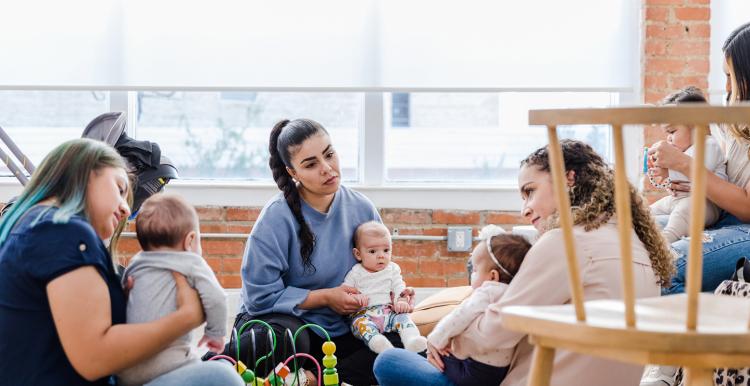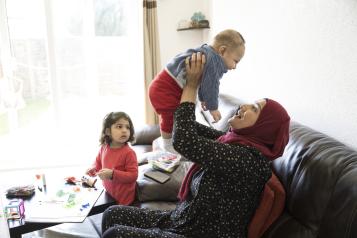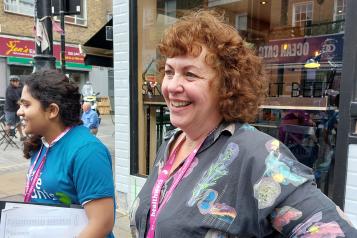Reflecting on our first year providing information to families about childhood immunisations

"One of our biggest achievements has been strengthening the knowledge base of staff in early years settings. They are now much better placed to support parental decision-making about childhood immunisations."
Immunisation is the most effective way to protect children against some very serious diseases. All the vaccinations offered in the childhood schedule are free. They protect against 13 diseases. Unfortunately, misinformation about vaccines is common and not all communities have easy access to reliable information.
Suzanne, our childhood immunisations specialist, has delivered a programme of outreach centred on the borough's most deprived wards, where uptake of vaccines is low. We've supported parents to make informed choices about their children's vaccinations.
What we have achieved
Since February this year:
- we've spoken to 538 parents in children's centres and other community settings, providing information, answering questions, and addressing concerns.
- we've supported 355 professionals to refresh their knowledge of immunisations by providing training and better access to relevant resources.
Building relationships and understanding systems
Different groups of professionals work collaboratively to improve vaccine take-up in the borough. Leaders from public health, general practice, family hubs, and children's centres come together with NHS commissioners and representatives from other delivery teams, including health visitors and family engagement workers.
As a new member of this group, Suzanne has been able to ask the questions that might have seemed too obvious for others to ask. This has helped the group pick up issues that had been missed. For example, we realised that, because they were not receiving data from GP practices, health visitors didn't know ahead of time about the immunisation status of the children they were visiting. This has now been changed and immunisations data is being shared.
Training the professionals best placed to speak with parents
We identified that not enough childhood immunisations training was being offered to non-medical professionals, particularly those working in early years settings. Together with colleagues in Public Health, we developed a training programme and delivered it three times to reach as many of these professionals as we could in as short a timeframe as was practical. The training reinforced key messages and familiarised participants with existing information resources as well as new ones developed by Suzanne. Staff who participated in the training have trusted relationships with parents engaging with their services, so their voices have weight.
"Family engagement workers at children centres have been given resources, enabling them to inform parents and signpost them on to health professionals for more in-depth conversations. Before, they didn't have this information at their fingertips. This has given them more confidence. Giving people access to information in a multitude of languages has been really important as well."
Suzanne Wilebore, Healthwatch Islington
Developing resources to support understanding
We audited the available information for childhood vaccinations and identified four user-friendly websites with trustworthy, translatable resources. To make the information more accessible, we produced a resource that linked to each site and gave a breakdown of the contents. Our key messages and list of online resources are suitable for professionals and parents alike.
- local authority leads for children's centres shared our materials with all their staff. They are using them to support conversations with parents and carers.
- the materials are also being used by health visiting teams
The Integrated Care Board had already produced a great poster showing the vaccination schedule for children up to five. We noticed the poster wasn't on display in the children's centres we visited. Over the course of the year, we persuaded staff to put the posters up, and arranged for more copies to be sent out in cases where posters had never been received. Now they're on display in most childrens centres.


